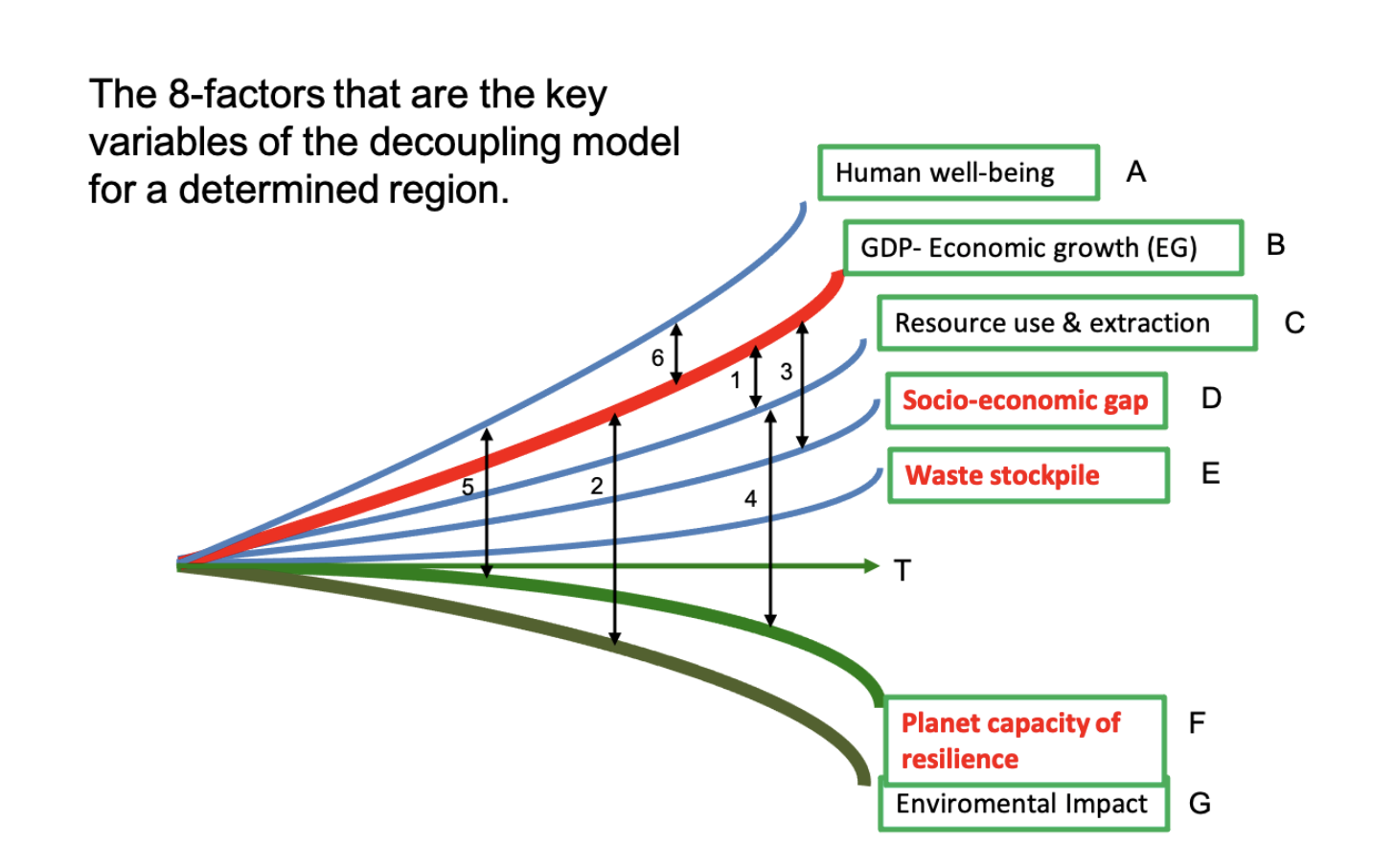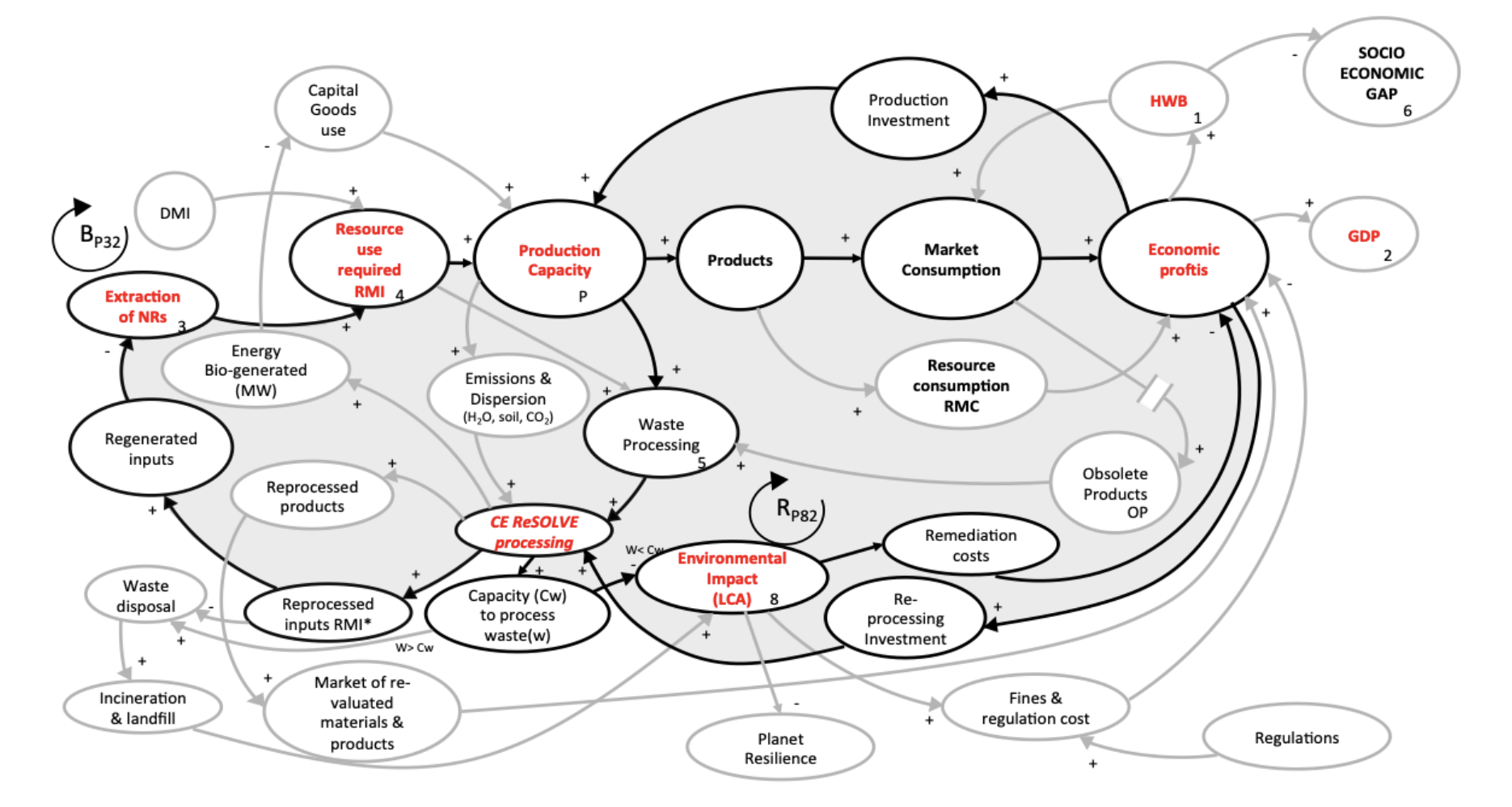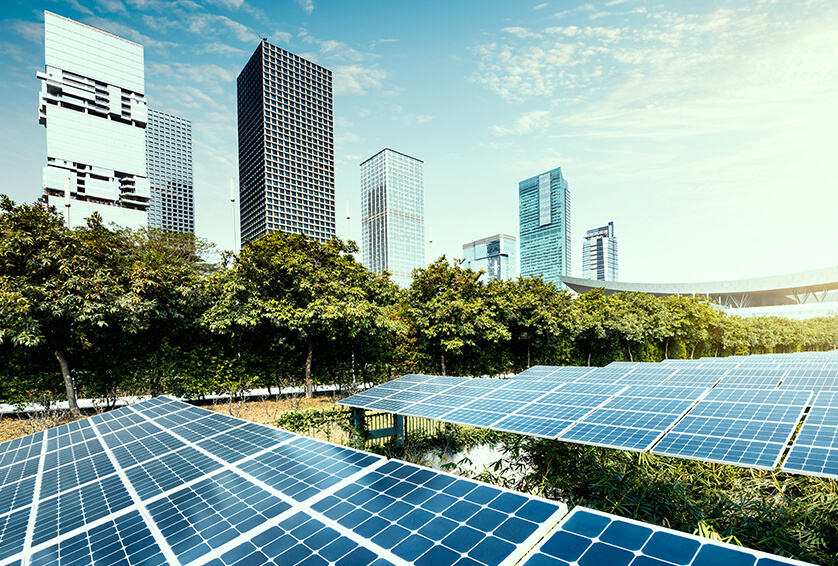Decoupling Model based on Circular Extended Value Systems

Sustainable development is a major concern for developing and developed economies as economic growth has led to scarcer and more expensive resources. Although countries have established public policies focusing on resource and energy efficiency, there is an increasing need for a coordinated industrial strategy able to create sustainable wealth through a holistic management of natural resources, capable of “decoupling” economic growth from resource extraction and natural deterioration.
Consequently, the objective of the present research is to develop a decoupling model able to create increasing economic returns, reducing the social gap and regenerating the natural capital for regions in developing countries. Departing from a literature review on peer reviewed articles on successful industrial cases of decoupling around the world, we contrasted the linear production model with the United Nations Environment Program (UNEP)’s current four decoupling indicators in order to propose a more robust model.
The result was an eight-factor decoupling model that used a well-supported framework for sustainable wealth creation named “circular value ecosystem” (CVES). By using system dynamics, we deployed the proposed framework using system dynamics modeling in order to improve the understanding of our proposal. We found that this model, with the proper regional conditions in developing countries, can: (1) reduce, through substitution, the consumption of natural resources; (2) produce alternative economic increasing returns; (3) reduce the negative environmental impacts; and (4) create self-sustainable wealth for the economy, the environment, and the social development of most stakeholders of these regions. Decoupling economic growth represents a complex and challenging task whose successful implementation can only be achieved if managed at a regional level with a systemic approach.
- Product-residues level.The circularization of linear product chains; based on a zero-value residue industrial ecology system (ZRIES)
- Clusters level. The extended regional circular value eco-system (CVES);
- Regional level.The third level is the sustainable regional sharing value system.


- References:
- Scheel, C. Aguiñaga, E. Bello, B. (2020) Decoupling Economic Development from the Consumption of Finite Resources Using Circular Economy. A Model for Developing Countries. Sustainability 2020, 12, 1291; doi:10.3390/su12041291. Feb 27 2020.


